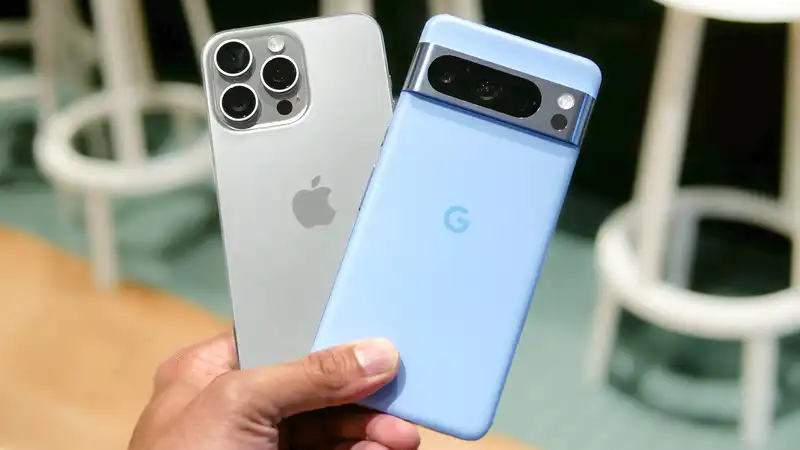Most people believe that Apple devices are ahead of Android in smartphone security. Researchers decided to test that notion. While Apple smartphones appear to be more secure than their competitors, the iPhone is far from a perfectly locked-down device in terms of security issues.
Cybernews' Ernestas Naprys conducted his research by preparing brand new iPhones and Android phones and installing the top 100 free apps from each platform's app store. He also created new social media accounts and authenticated them with apps that allow it.
From there, he let the phones sit idle for five days, tracking how often they connected to foreign servers and where those servers were located. Interestingly, the iPhone sent 3,308 server queries daily, compared to 2,323, more than Android.
But don't let these numbers fool you. Apple sent nearly 1,000 more queries, but 60% of those queries were sent directly to Apple, which is secure. For Android, only 24% were sent to Google, with the rest going to third-party servers around the world. For example, the iPhone accessed an average of one Russian server per day, while Android accessed an average of 13 servers. For Chinese servers, the iPhone did not contact any, while Android connected to five per day.
Overall, iPhones were more selective about the servers they connected to, despite having a higher overall number. On Facebook, iPhones connected 20 times per day, while Androids connected nearly 200 times per day.
To track when and where queries to servers were sent, Napris used a private domain name system (DNS).
One does not necessarily need to be alarmed about the state of Android and iPhone and their security, but it is something to think about.
The CyberNews team noted, "This in itself is neither unusual nor highly suspicious. Such endpoints are used quite frequently in apps to track which ads users have seen, app usage, search patterns, etc. While this is a common practice, it raises serious privacy and security concerns.
"The data collected by these services is generally not that sensitive, however, journalists, activists, opponents, or others who may be of interest to the government should take this extremely seriously and be aware. They should avoid using such apps or at least block traffic tracking services," the team continued.
If you're worried about your phone sending requests to countries like Russia and China, you may want to stick with your iPhone. It's not perfect, but it does seem to be a bit more considerate in terms of choosing secure locations and sticking to its own servers whenever possible. There are also phones that focus on privacy, such as the Punkt phone unveiled at CES 2024 earlier this year.










Comments